SPOTLIGHT: THIIM
Published June 4, 2025
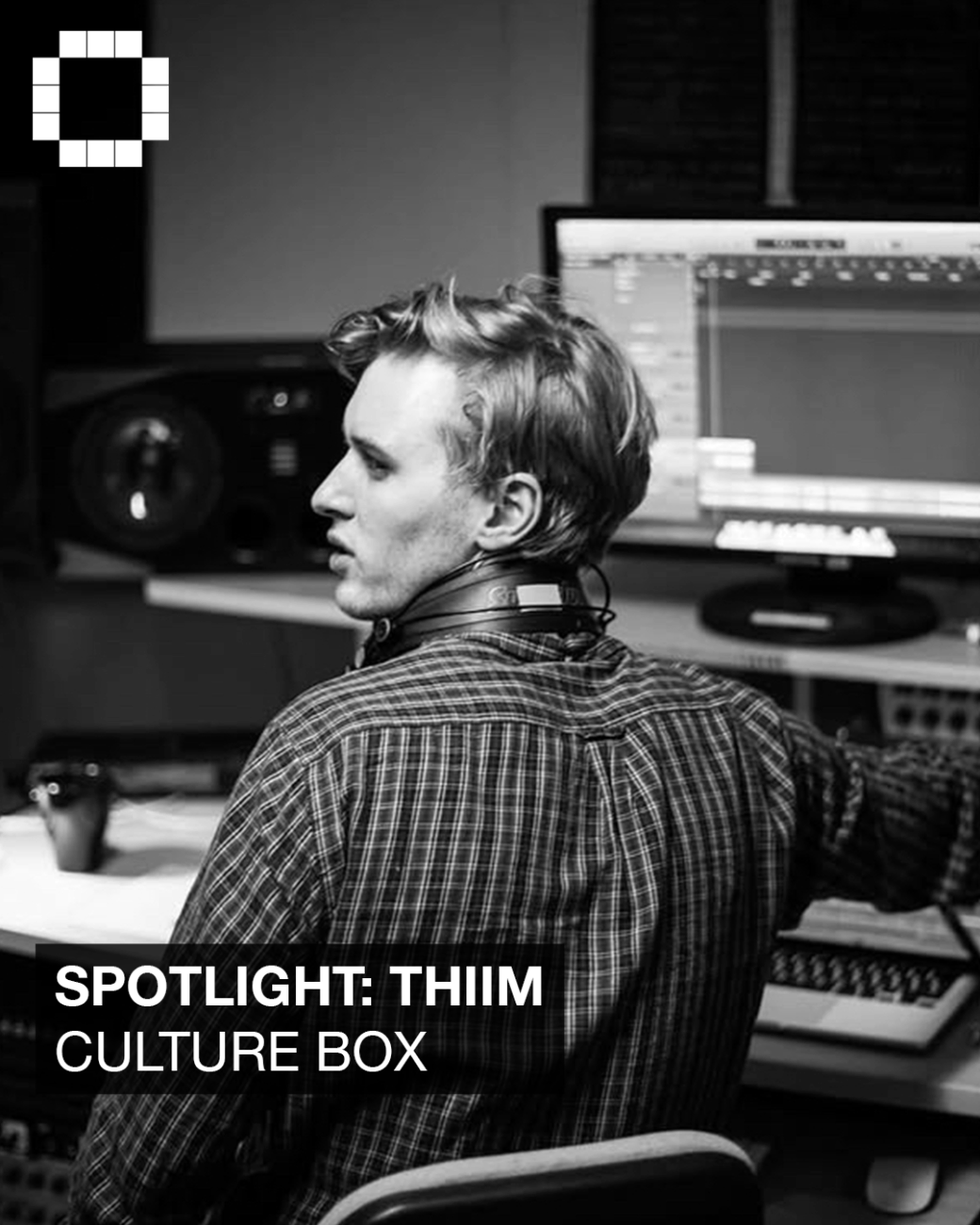
On Thursday, June 5, Thiim returns to Culture Box as part of Distortion Club, sharing the night with Brazilian techno heavyweight Wehbba. We caught up with him to learn about his journey with electronic music so far, how he’s preparing for the night, and what to expect on Thursday.
Can you briefly share your background and how you first got involved with electronic music?
It all started back in 7th grade at my first The Prodigy concert. The raw energy, the sound, the way electronic music could completely transform a space—it lit something in me that’s never faded.
Before I even got close to DJing, I spent about eight years playing piano and guitar. That gave me a strong musical foundation and a natural curiosity about sound. While most people in high school were playing in traditional bands, I was sneaking synths and lights into the mix, trying to push the experience further.
Over the last decade, I’ve produced everything from hip hop to pop and electronic music. A big turning point came when I had a duo where we blended samples, synths, and electronic drums with custom-programmed lighting. That experience really shaped how I think about music—not just as something to hear, but something to feel, visually and emotionally.
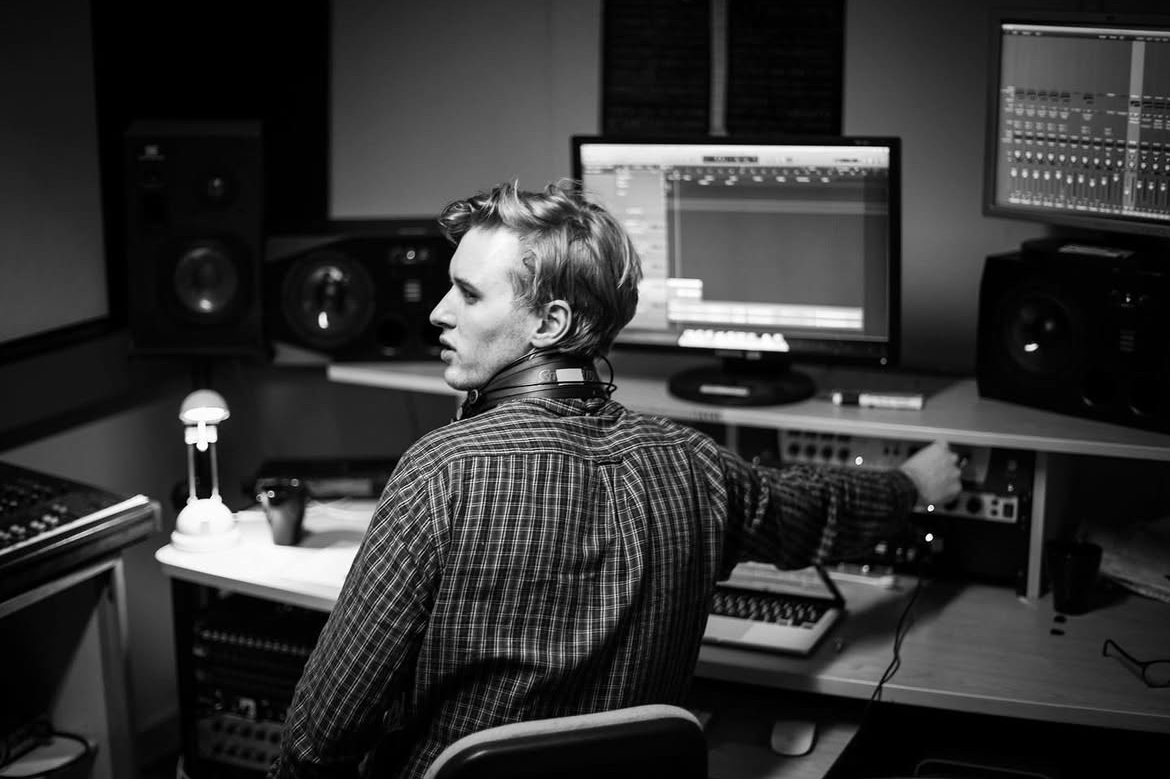
What initially drew you to DJing, and how did you take your first steps behind the decks?
What really drew me to DJing was the creative freedom in how you can blend tracks together and shape a moment. I loved that you could loop a vocal and ride it over a build-up, layer in percussion to bring more life into a track, or mix two build-ups to uplift the tension. There’s a deep connection to music production in that kind of mixing, but what excited me most was how direct and fluid the experience felt. Compared to playing in a band–where you rehearse a fixed set for months–DJing gave me the freedom to control and react to the crowd in real time. The whole atmosphere could shift in seconds, and I was behind the wheel.
I brought a small dj controller on a trip to India in 2020. I recorded sets in nature near the Himalayas, on a boat on the Ganges River, and in the quiet chaos of late-night city streets. That journey continued to Zanzibar, where I traded sets for hotel stays and eventually played some of the island’s biggest clubs.
From the beginning, DJing for me wasn’t just about playing tracks. It was about shaping the sound I always wished I heard in clubs, building the kind of journey I used to crave on the dancefloor. That’s still what drives me every time I step behind the decks.
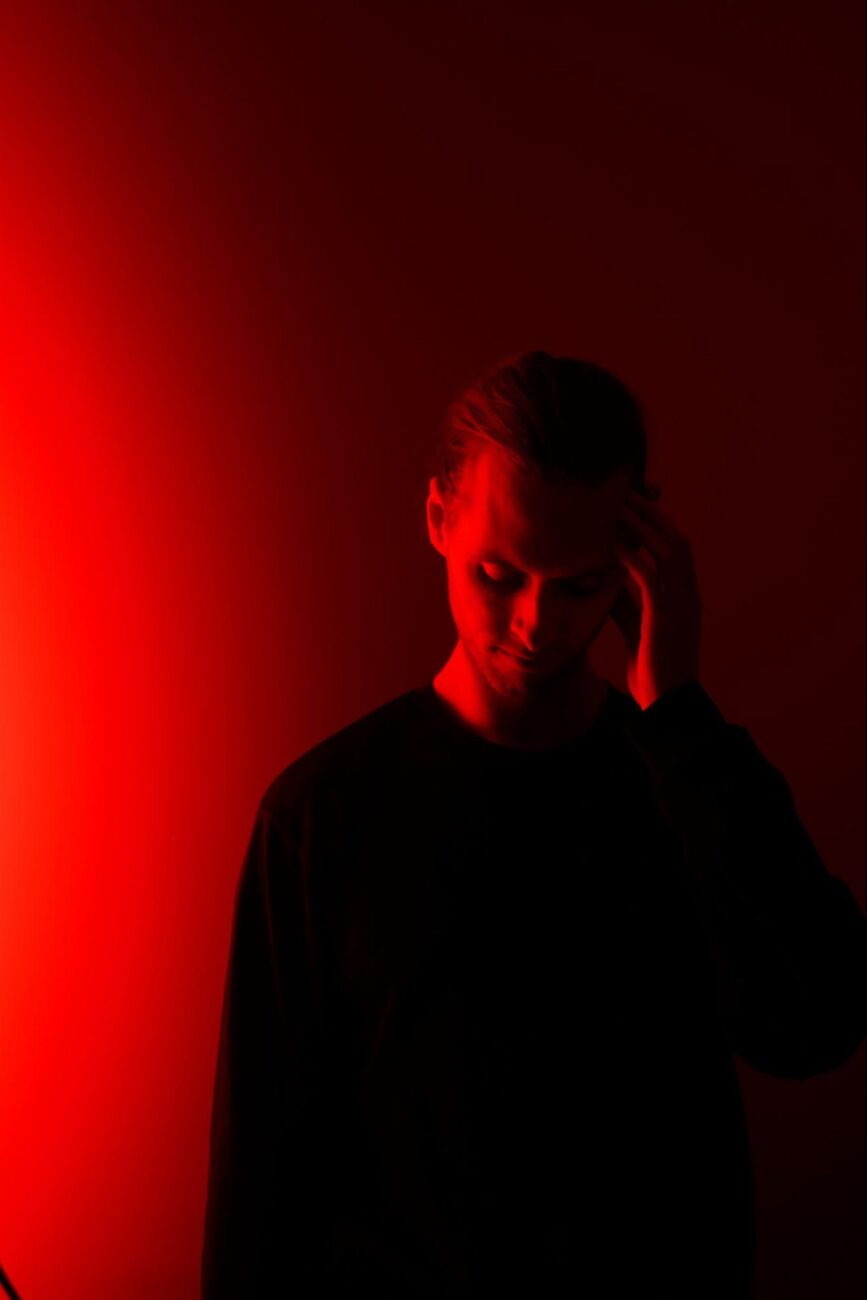
As an emerging DJ, what have been some of the biggest challenges you’ve faced, and how have you worked through them?
One of the biggest challenges as a new DJ is simply being seen. There are so many talented people out there, and if you don’t actively put yourself out–through events, mixtapes, radio shows–no one will know what you can do.
Early on, I struggled with that. I didn’t know how to get booked or break into clubs. But over time, I realized you don’t have to wait for a gatekeeper. You can build your own momentum. Host your own parties. Find the right people to team up with. Create a community around your sound.
The key is consistency. When you keep showing up–whether it’s releasing mixes, organizing events, or attending to others dj sets–things start to compound. People take notice. And eventually, the clubs will notice.
Is there a moment or experience in your journey so far that stands out as especially formative or meaningful?
I used to stand on the dance floor at Black Box, completely lost in the music and lights, just imagining what it would feel like to be behind the decks–controlling the vibe, building the journey, putting my own spin on it. That image stayed with me for years.
So when I finally got the chance to play through Culture Box’s Open Call for Artists, it meant everything. I had sent in mixes for years without hearing back, so I honestly didn’t expect to get it. But looking back, I’m glad it took time–it made the moment even more meaningful.
I was insanely happy, but also really nervous. I remember feeling restless and nervous before my set. But once I played the first two tracks, something just clicked. It felt so natural. Like, this is where I’m supposed to be. The nerves disappeared, and I dropped into the music fully. Since that night, DJing has felt less like performing and more like being exactly in flow–selecting, mixing, enjoying the moment.
Another moment that stands out is when we built a full outdoor stage in Sweden and I played surrounded by 80 people. Being in the middle of that crowd, on a stage we built, was surreal.
And then there was the first techno party I ever hosted – right in my own home. I stripped out all the furniture, put the decks in the middle of the room, and programmed custom lights to run with my set. My friends danced around me while I played. That night felt like the beginning of everything.
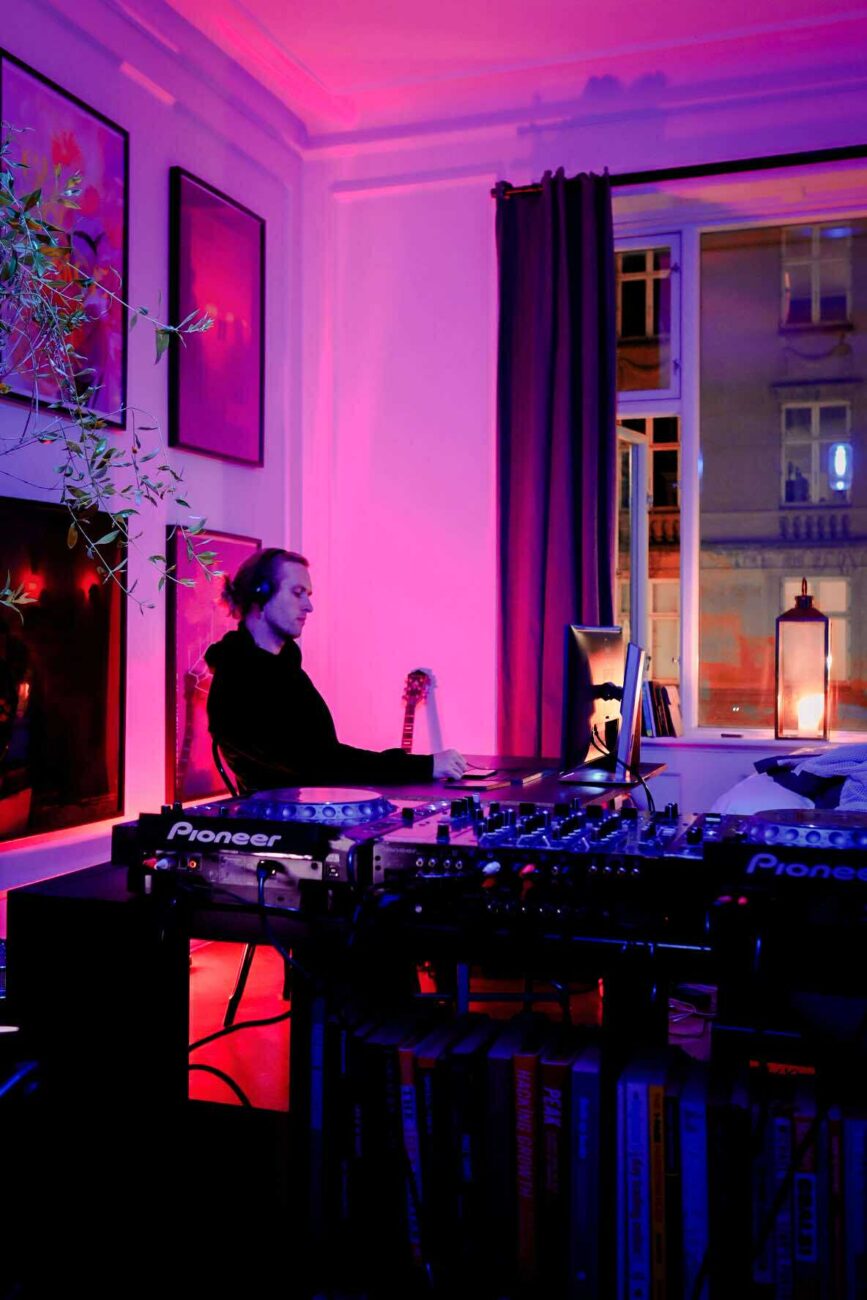
What’s the best piece of advice you’ve received, and how has it influenced your approach to music or performance?
One of the most impactful pieces of advice I’ve received is to focus on stacking habits, not just chasing goals. Enjoy the habits you build to improve and get better. Instead of obsessing over big milestones, I’ve learned to enjoy the everyday grind: digging for tracks, refining mixes, producing a few bars at a time. When the process itself becomes something you love, the results naturally follow.
Equally important has been surrounding myself with the right people. Having a team or community that shares your passion, supports you during the tough moments, and pushes you beyond your comfort zone – it means everything. I genuinely wouldn’t be where I am today without those people around me. So if I had to give advice to anyone starting out: build your circle. Talent matters, but the people you grow with matter even more.
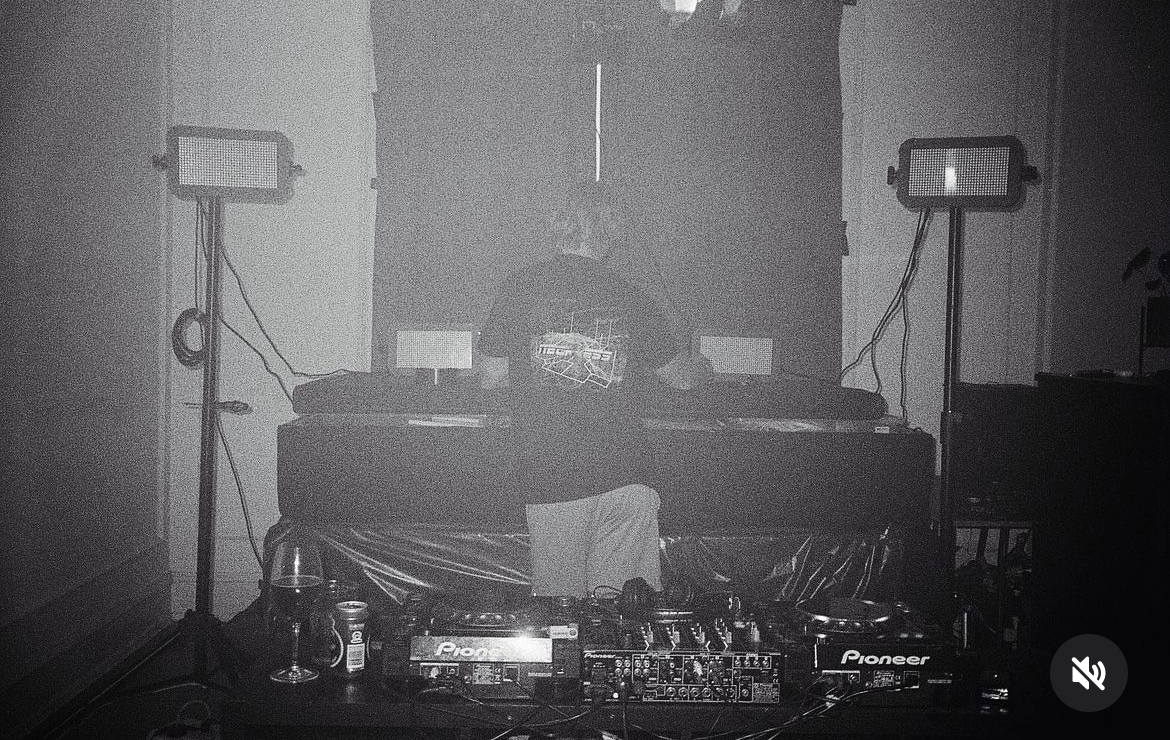
You’re playing at Distortion Club at Culture Box on Thursday, June 5th. What does this opportunity mean to you, and what can the audience expect from your set?
This gig means the world to me.
Distortion played a huge role in my journey into electronic music. I remember going to those street parties for the first time and realizing, wow, it’s not bands driving the energy here, it’s DJs. The sound, the lights, the vibe, it showed me a whole new kind of musical experience. That moment lit the spark for everything I’m doing now.
So getting to play a Distortion Club event, especially at Culture Box’s Black Box, feels like coming full circle. It’s one of the best sound systems in the city, and an amazing light system.
Sharing the lineup with Wehbba makes it even more special. I’ve followed him for years – his music, his courses, everything. One of his tracks was the highlight of my first Culture Box set, so playing after him now feels surreal.
I’ve been collecting music for this night for a long time. It’s gonna be packed with energy, emotion, and tracks I can’t wait to share.
How do you prepare for a set like this – is there a particular vibe or story you aim to create with your music?
When I prep for a closing set, I think of it as writing the last chapter of the night. Wehbba will most likely bring heat, so I want to carry that flame forward – it’s about maintaining momentum while slowly guiding the room toward a satisfying close. Toward the end, I like to bring in elements that gives people a moment to reflect while still dancing. My goal is to guide the night to a meaningful close and leave them walking out with full hearts and tired legs.
My prep process is pretty immersive. First, I dig through tons of tracks and do an initial selection. Then I take long walks – just listening. That’s when I really get to know each track: the rhythm, the emotion, the kind of moment it could create on the dancefloor. I think about what kind of “superpower” each track has – whether it’s a deep groove, a vocal hook, or something that resets the energy without killing the vibe.
I tag everything in my dj software Rekordbox really precisely, by energy level, vibe, function. So when I’m in the booth, I can stay in the moment. I know my tracks well enough to play freely, react to the room, and follow the flow wherever it goes.
That’s how I build a set that’s both intentional and alive – because the closing moment should feel like something people remember.
Looking ahead, what are some of your goals or dreams for the future, both creatively and professionally?
One of my biggest goals is to play outside Denmark more often. I want to meet other DJs and producers, explore different club cultures, and collect experiences that shape me – on and off the stage.
Outside of my personal DJ career, I built a music collective together with friends called Neckless, where we focus on immersing DJ sets with lights and art installations. We focus on community, with long table dinners and DJ sets that are tightly connected to the light design. We now know DJs we didn’t even know a year ago, and every event we create brings in new faces. I want to continue growing that and create some truly amazing light installation setup to our events
This year, we’re not just playing, we’re curating and building full stage experiences. At Rudme Festival in Denmark and Krantz Festival in Sweden, Neckless is both booking DJs and designing the full stage production ourselves.
Moreover, my personal goal is also to release more of my own music. I’ve got many ideas and I’m excited to finally bring them to life. I want to grow–both as a DJ and a producer–and right now, I’m loving the connection I feel with people in the crowd. It’s wild how many familiar faces I see at gigs – some people I didn’t know before but now share this music with.
And maybe it sounds simple, but I just really love music. It’s a big part of my daily life. I get lost in tracks – listening deeply, picking apart the layers, the emotion, the surprises.
And a milestone for me? Definitely playing at Distortion Ø or Karrusel. Those festivals shaped my sound and inspired me for years.
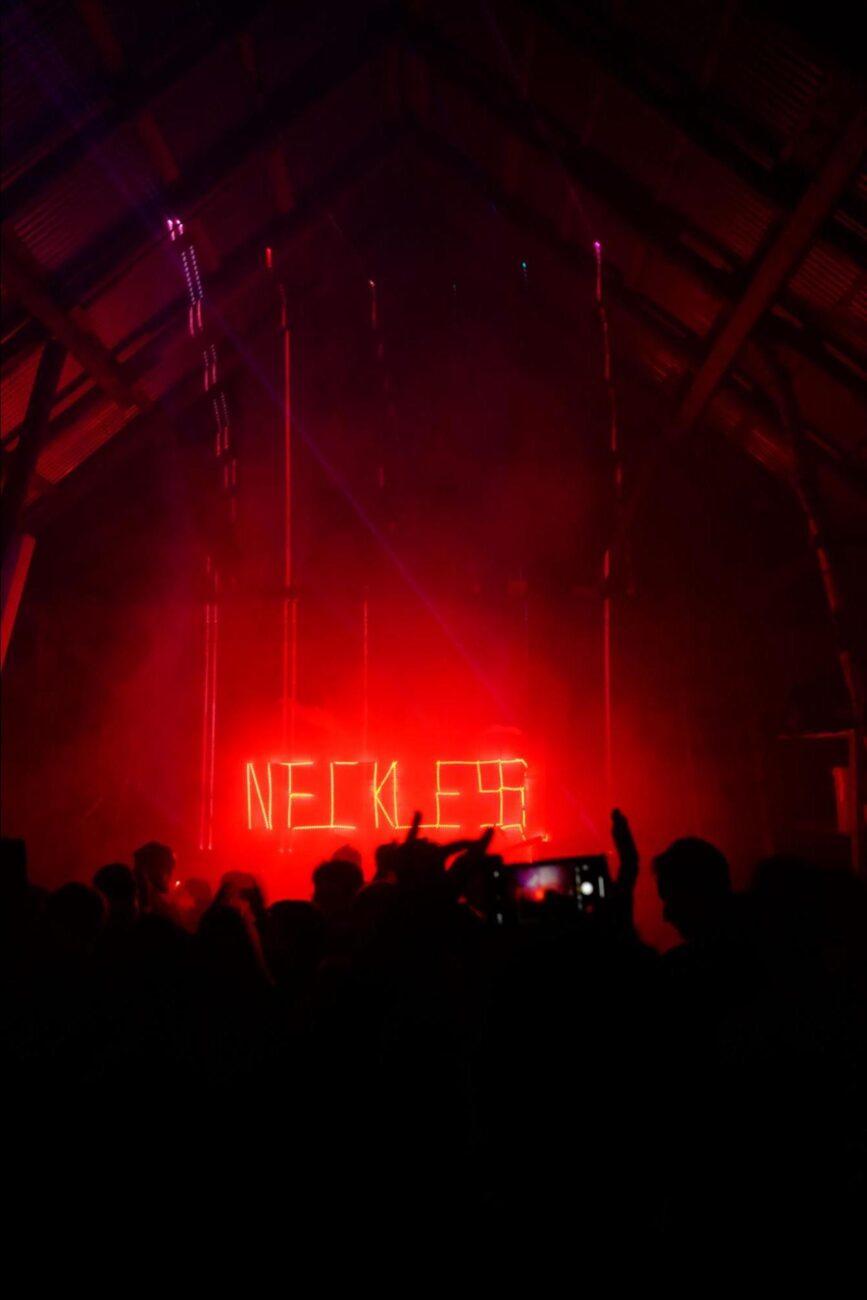
Finally, what advice would you give to someone just starting out in the electronic music scene?
Start small – but start today.
If you’re just getting into producing or DJing, don’t stress about mastering everything at once. The most important thing is to build daily habits. That’s where growth happens – not in huge leaps, but through small, consistent steps that stack up over time.
Start producing. Begin by asking yourself: Where am I now? What’s my next step? If you’re still learning your DAW, give yourself some months to get comfortable with it. Break that goal down into weekly tasks – like finding the right tutorials, solving specific issues (maybe your kick drums don’t hit right, or your mix feels flat), and practicing deliberately for 15 to 60 minutes a day. That adds up fast.
Same with DJing. Make it easy to play. I have a full CDJ setup right in the middle of my living room – plugged in, ready to go. So whenever friends come over, we often end up playing back-to-back for hours. It’s not just fun, it’s training, and it happens naturally in a social setting. You get better without it feeling like “practice.”
That’s the key: build a rhythm that fits your life. Mix two tracks a day. Produce something small. Keep it light enough, so you can keep it consistent.
Over time, your skills grow – and so does your scene. You’ll start putting music on SoundCloud, maybe throw a few events, and people will start showing up. That’s what we did at our Neckless events, we build community through dinners before gigs and friends between friends groups began connecting over music. That’s the magic – when the music becomes a way to meet people, build community, and create experiences.
So don’t wait to feel “ready.” Just start. Make it easy. Make it fun. And let the rest grow from there.
READ MORE: